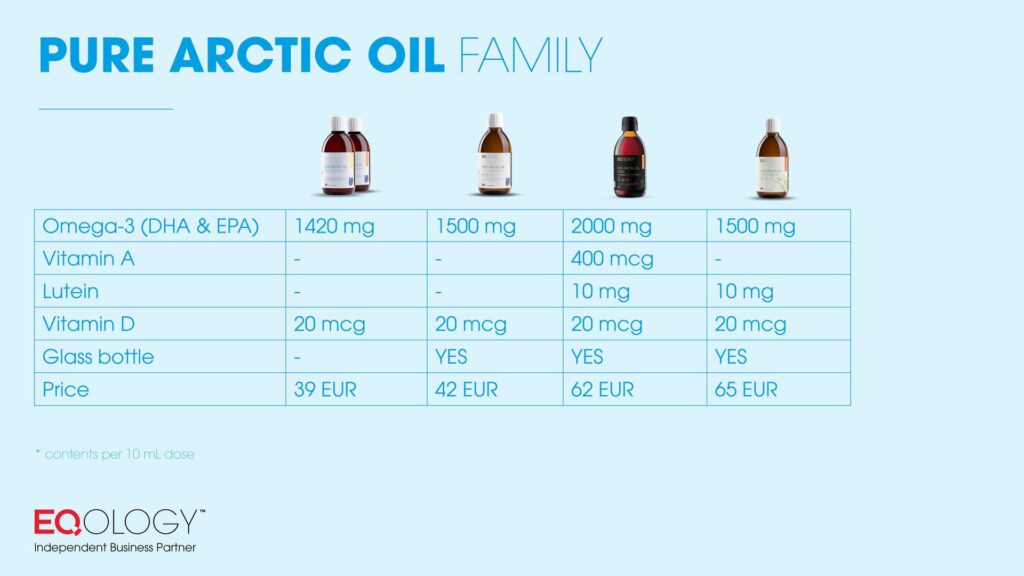


The Importance of Omega-3 in Women’s Health. The other week, I attended the insightful Women’s Health webinar, hosted by Dr. Irene Heschl-Koller and Dr. Linda Saga. I learned that Omega-3 fatty acids play a crucial role in women’s health, impacting various stages of life, from pregnancy to menopause. This blog post will summarise the key points of the webinar for those who couldn’t attend, exploring the importance of omega-3 intake, its benefits, and the need to maintain optimal levels for overall well-being.
During pregnancy, a mother’s lifestyle and diet directly impact the baby’s development. The foetus receives nutrients, including omega-3, solely from the mother through the placenta. A well-functioning placenta, with an omega-3 index above 8%, is essential for healthy foetal development. DHA, a vital omega-3 fatty acid, is crucial for both the mother and the baby, with the umbilical cord blood needing an omega-3 index between 8% to 11% for optimal health.

Studies have shown that pregnant women often have a low intake of omega-3, consuming only one-fifth of the recommended daily amount of 520 milligrams of EPA and DHA. This low intake is not just a concern in the U.S. but also in European and Nordic countries. Higher omega-3 levels during pregnancy benefit both the mother and the foetus, reducing the risk of complications and supporting overall health.
A Danish study analysed the fatty acid composition in the blood of women who delivered before week 35 and those who delivered at term. The results indicated that women who delivered early had significantly lower levels of EPA and DHA. Maintaining optimal omega-3 levels can reduce the risk of preterm birth and other complications such as gestational diabetes, preeclampsia, and postnatal depression.
Low DHA levels in mothers can contribute to postpartum depression, affecting around 20% of women within the first 12 weeks after giving birth. The baby’s development depletes the mother’s DHA levels, leading to a higher risk of depression. Ensuring adequate omega-3 intake can help mitigate these risks and support the mother’s mental health.
The early childhood years are critical for growth and development, especially for brain growth. During the last trimester, the brain grows by 260%, and another 175% during infancy. This rapid development makes it essential for the child to receive key nutrients like DHA, which supports cognitive, social, emotional, behavioral, and vision development. Research shows that higher DHA levels in infants are linked to better language and motor skills as they grow.
It’s important for children to consume omega-3 as part of their diet. However, studies have shown that the intake of fish, a primary source of omega-3, is far below the recommended daily intake. For example, a study of fourth to eighth graders showed they had only 24 grams of fish per day in their diet. The omega-3 index for children aged 5 to 15 years old is as low as 4%, which is not sufficient for proper growth and development. Parents should ensure their children receive adequate omega-3, either through diet or supplements.
As girls enter puberty, typically between ages 8 to 13, their bodies undergo significant changes. Hormone balance is crucial during this time, and omega-3 fatty acids play a vital role. Teenage girls on low-fat diets or with eating disorders risk hormonal imbalances by missing out on essential fats. Omega-3 supplementation can reduce the intensity of menstrual pain and cramps, and help manage conditions like endometriosis and migraines.

During adolescence, omega-3 intake continues to be important for brain and mood development. Studies have shown that increased DHA intake can decrease the likelihood of emotional stressors and mood disorders. Omega-3 can also help manage symptoms of ADHD and improve learning disabilities. Ensuring teenagers receive adequate omega-3 can support their overall mental and physical health.
In adulthood, omega-3 continues to play a crucial role in health, including family planning, pregnancy, and postpartum periods. Optimal nutrient intake, especially omega-3 fatty acids and vitamin D3, can positively impact fertility for both men and women. Omega-3 also helps manage PMS, PMDD, migraines, and other health issues related to hormonal balance.
Menopause typically occurs between the ages of 45 and 55, bringing visible and noticeable symptoms due to natural hormonal changes. About 70% of women experience hot flashes, night sweats, mood imbalances, depression, sleep disturbances, and a loss of libido. Many women also struggle with weight gain and skin changes. The good news is that many symptoms can be managed through a healthy lifestyle, particularly diet. Omega-3 fatty acids can help alleviate menopausal symptoms by improving the omega-6 to omega-3 ratio, offering a natural alternative to hormone therapy.
Osteoporosis is a condition that develops years before it is diagnosed, often during menopause. Hormonal changes during menopause negatively impact the skeletal system, making prevention crucial. Alongside omega-3s, vitamin K2 and D3 are essential for regulating calcium metabolism and maintaining bone health. Magnesium further supports bone stability. Ensuring optimal omega-3 intake, along with essential nutrients and collagen, can help maintain healthy bones.
Omega-3 fatty acids are essential for women’s health at every stage of life. From supporting foetal development during pregnancy to reducing the risk of postpartum depression, maintaining optimal omega-3 levels is crucial. Healthcare practitioners should emphasize the importance of omega-3 intake and ensure that women are informed about its benefits.

you can watch the whole webinar here
I recommend Eqology’s Pure arctic oil

Sometimes it’s nice to put in text just to get an idea of how text will fill in a space on your website.